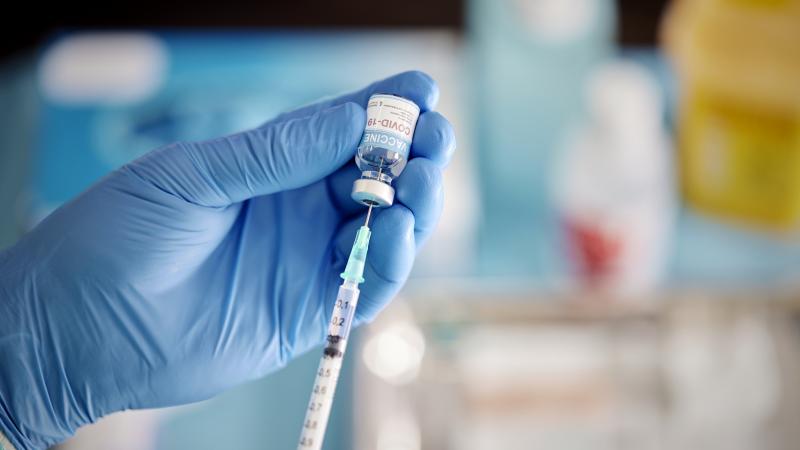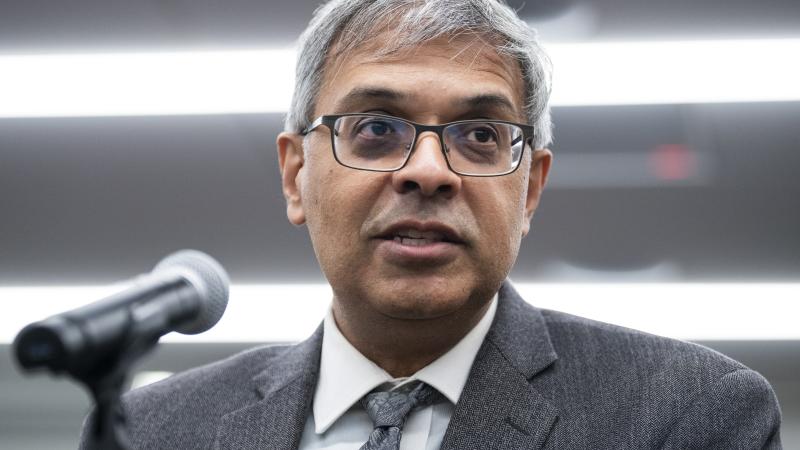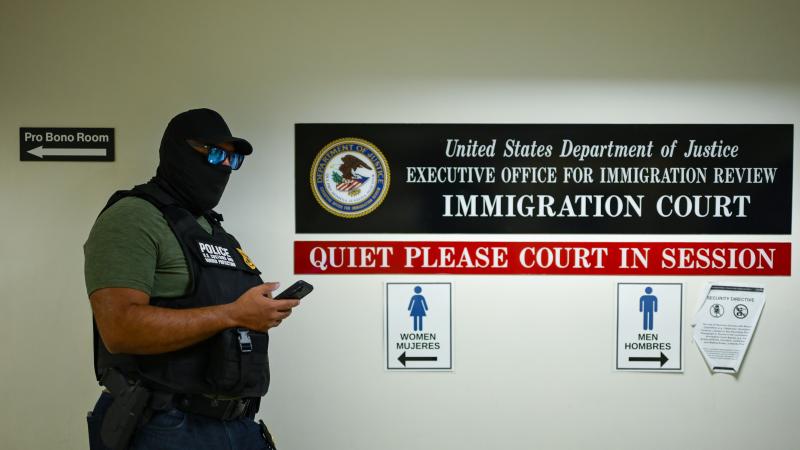Critical Condition: America faces a supply chain crisis for basic drugs, and Trump wants to fix it
Reliance on China for basic drugs like antibiotics, PPE and surgical sterilization tools leaves the United States vulnerable to shortages.
During his final years as an Army commander, retired Col. Victor Suarez began noticing a troubling trend that put troops at risk in the battlefield, and Americans at home too.
"We found that basic things like getting access to ketamine for battlefield use, for pain management or antibiotics for those soldiers that were deployed in locations where there were bacterial infections, some of those things were more challenging to get into this system because of drug shortages globally and in United States and our supply chains," Suarez told a Just the News, No Noise television special on Thursday.
"So this is not only a big risk to those service members and their families, but also veterans that are now, you know, relying on the VA and the basic U.S. system to support their healthcare needs as they go forward," he added.
Suarez took his concerns to Congress, giving bombshell testimony that alarmed senators and prompted lawmakers to begin demanding questions.
"This is a horrible situation," Sen. Roger "Doc" Marshall, R-Kan., a medical doctor now serving in the Senate, told Just the News. "America makes only about 10% of our active pharmaceutical ingredients. These are the simple things: antibiotics, penicillin, ampicillin, Keflex. Think about insulin or monoclonal antibodies. These are real simple things."
Marshall said the efforts of drugmakers to drive down costs through globalization moved the production of ingredients and finished drugs overseas to China, a competitor, and India, an ally with a history of quality control issues with drugmaking.
"What China does is they steal our technology, then they replicate it, they bring it up to scale," Marshall explained. "Then after they're up to scale, what they'll do is they'll enter the market with a product and undercut all their competition. And after they corner the market, they create an artificial shortage of that particular drug, and then they raise their prices. That's their model."
Trump administration officials acknowledged to Just the News that shortages of basic drugs like antibiotics and antivirals have worsened over the last decade and the COVID-19 pandemic created an alarm moment when the U.S. found itself unable to secure masks, gowns and antibiotics.
But when the pandemic ended, the Biden administration failed to take any substantive actions to re-source America's drug supply chain.
Rep. Mariannette Miller-Meeks, R-Iowa, who served as a nurse and physician in the U.S. Army for 24 years, said she was alarmed by what she observed during the COVID-19 pandemic.
"We saw that the Chinese Communist Party was sequestering or hoarding PPE (personal protective equipment) and also antivirals, antibiotics," she said. "And they're one of the prime manufacturers of those medications that we need...ibuprofen, hydrocortisone, they make those as well our generic medications."
President Donald Trump began his presidency with an executive order pressuring drugmakers to lower the costs of their products to Americans to closer to the levels they sell the same products overseas. The order had an instantaneous impact.
Now Trump's top medical officials say they are feverishly working on a plan to fix the supply chain system, first by stockpiling basic ingredients for key drugs inside the United States over the next couple of years and then creating a solution to make the ingredients and finished drugs back in America over the next decade.
"The problem is that we do not have sufficient domestic manufacturing of these basic medical items," newly appointed NIH Director Jay Bhattacharya told Just the News. "And so any sort of stress at all in the system, and basic medications that Americans should be able to have if they get sick may not be available.
"That's something that the Trump administration is really deeply concerned about and working hard to fix," he added.
The immediate focus is on the basic staples of medicine like Insulin, antibiotics and antivirals but officials said the problem extends even to America's most modern medical inventions.
Even in cell therapies that treat sickle cell anemia, "you take the cells out of American patients, send them to China where the Chinese edit them, and then bring them back and give it to Americans," Bhattacharya explained. "There's no reason why America shouldn't be the hub of this."
Another nation, though less adversarial, that is causing U.S. concern is India.
India’s pharmaceutical industry has struggled with maintaining consistent quality, highlighted by the 2022 contaminated cough syrup incidents tied to child fatalities in Gambia and Uzbekistan, which drew international attention. Weak regulatory oversight and uneven compliance have led to subpar drugs slipping into markets, with many firms blacklisted in 2023 for quality violations.
Bhattacharya said the solution could be as easy as allowing a U.S. Food and Drug Administration (FDA) inspector to be present at manufacturing operations.
"That kind of collaboration will result in more oversight and better regulation of the Indian pharmaceutical manufacturing firms, so that we can have confidence that if you have something manufactured in India and is brought to the United States that it's safe enough for use in America."
The recently-signed One Big Beautiful Bill offered another early solution to the supply chain crisis. It includes tax provisions that incentivized domestic manufacturing, such as full expensing for research and development and capital investments for new factories, which could indirectly affect foreign pharmaceutical manufacturing by encouraging companies to prioritize U.S.-based production.
Bhattacharya also praised Trump's executive order in May, "Delivering Most-Favored-Nation Prescription Drug Pricing to American Patients."
"The same manufacturer, often even American companies, will charge Europeans ten times less, five times less, two times less for the same drug that they charge Americans for," he noted.
"That's what the President's executive order says, the U.S. is saying enough of that. We're going to demand that the drug companies treat Americans fairly."













